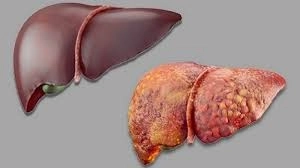
Managing Chronic Liver Failure with Surgery and Modern Transplantation
Published on: 2025-06-19 | Written by: Specialized Hospital for Digestive System and Liver
Chronic liver failure is one of the most serious conditions affecting patients' health and quality of life. At Al-Takhassusi Hospital for Gastroenterology and Liver Diseases, comprehensive care is provided using the latest surgical and liver transplantation techniques, offering hope to many patients.
What Is Chronic Liver Failure?
Chronic liver failure is the gradual decline in liver function due to ongoing diseases such as cirrhosis, chronic viral hepatitis, or advanced fatty liver disease. This condition impairs the liver’s ability to perform vital tasks like blood detoxification, protein production, and fat digestion.
Common Causes
Major causes of chronic liver failure include:
-
Hepatitis B and C infections
-
Cirrhosis from alcohol or obesity
-
Non-alcoholic fatty liver disease
-
Genetic disorders like Wilson’s disease
-
Chronic drug toxicity
At Al-Takhassusi Hospital, the root cause is carefully diagnosed to tailor an effective treatment plan.
Symptoms
Chronic liver failure may present with the following signs:
-
Yellowing of the skin and eyes (jaundice)
-
Fluid accumulation in the abdomen (ascites)
-
Mental confusion or decreased focus (hepatic encephalopathy)
-
Easy bruising or bleeding
-
Extreme fatigue and weight loss
-
Swelling in the legs and ankles
Diagnosis at Al-Takhassusi Hospital
Patients undergo a full diagnostic process including:
-
Liver function tests
-
Abdominal ultrasound or CT scan
-
Endoscopy to detect esophageal varices
-
FibroScan to evaluate liver fibrosis
-
Transplant candidacy assessment
Treatment Options
Treatment depends on disease severity:
1. Conservative Management
-
Managing complications such as ascites or bleeding
-
Low-sodium diet
-
Diuretics
-
Antibiotics for infections
-
Avoiding liver-toxic medications
2. Surgery and Liver Transplantation
If liver function fails completely, liver transplantation is the best option.
At Al-Takhassusi Hospital for Gastroenterology and Liver Diseases:
-
Patients are evaluated for transplant eligibility
-
Coordination with accredited transplant centers is arranged
-
Post-operative care ensures stability and monitors rejection
When to See a Doctor
You should see a doctor if you notice:
-
Sudden yellowing of the skin or eyes
-
Confusion or fainting
-
Sudden abdominal swelling
-
Worsening of a known liver condition

